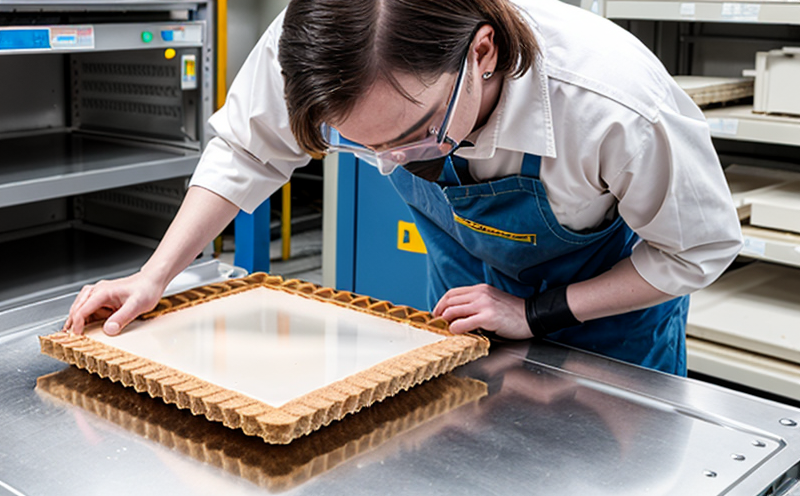IEC 60749 Wafer Package Integrity Testing
The IEC 60749 standard is a critical protocol used in the semiconductor and microchip testing sector to ensure the integrity of wafer packages. This service plays an essential role in quality assurance, compliance with international standards, and the overall reliability of semiconductor products.
The IEC 60749 wafer package integrity test evaluates various aspects such as mechanical strength, electrical insulation, and moisture resistance. The process involves placing the wafer within a controlled environment to simulate real-world conditions that may affect its performance. This includes exposure to temperature cycling, humidity, and other environmental factors.
During testing, the specimen is subjected to rigorous procedures aimed at identifying any potential flaws or weaknesses in the package's design. These tests are crucial for ensuring that semiconductor devices meet stringent quality standards before they reach manufacturing processes or final product assembly.
The testing apparatus used adheres strictly to IEC 60749 specifications, providing accurate and reliable results. The equipment is calibrated regularly to ensure consistent performance across multiple tests. Compliance officers responsible for maintaining high-quality production must rely on these tests to meet regulatory requirements set forth by international bodies like ISO and ASTM.
Quality managers and R&D engineers benefit greatly from this service as it helps identify issues early in the development cycle, reducing costly rework and improving product reliability. By ensuring that all packages pass IEC 60749 testing, manufacturers can gain confidence in their products' ability to withstand harsh operating conditions.
Additionally, this type of testing supports sustainability efforts by identifying defects at an early stage, minimizing waste throughout the manufacturing process. It also promotes responsible resource use by ensuring only high-quality materials are used in subsequent stages of production.
In summary, IEC 60749 wafer package integrity testing is a vital component in maintaining consistent quality standards across semiconductor fabrication facilities worldwide. Its implementation ensures that manufacturers meet both internal and external expectations regarding product reliability and safety.
International Acceptance and Recognition
- The IEC 60749 standard enjoys widespread acceptance among leading semiconductor manufacturers globally.
- Compliance with these standards enhances a company's reputation for producing high-quality products that meet international safety and performance benchmarks.
- Many countries have adopted IEC 60749 as part of their national regulations governing electronic components.
The standard is recognized by major industry associations, further cementing its importance in the sector. This recognition ensures uniformity across different regions, facilitating trade and collaboration between companies operating internationally.
Environmental and Sustainability Contributions
IEC 60749 wafer package integrity testing contributes significantly to environmental protection by minimizing waste during production processes. By identifying defects early in the manufacturing stage, this testing helps prevent the use of substandard materials that could otherwise be wasted.
In addition to reducing material waste, this service supports sustainable practices by promoting efficient resource utilization. It encourages manufacturers to adopt more environmentally friendly approaches without compromising product quality or performance.
The implementation of IEC 60749 testing also aligns with broader sustainability goals aimed at reducing carbon footprints and promoting circular economy principles within the electronics industry.
Use Cases and Application Examples
This service is widely used in various applications, including:
- Ensuring compliance with IEC 60749 standards for semiconductor manufacturing processes.
- Demonstrating adherence to international quality assurance guidelines during procurement activities.
- Identifying potential weaknesses early in the development cycle to improve product reliability.
In practice, this testing is conducted on wafers at different stages of production. For instance, raw materials might undergo initial checks before being processed into finished products. Finished items would then be tested again after assembly to ensure they meet all specified criteria.
The results from these tests are often used by quality managers and compliance officers to make informed decisions about product design improvements or process adjustments. R&D engineers also rely on this information to refine their designs, ensuring better performance across a range of operating conditions.





